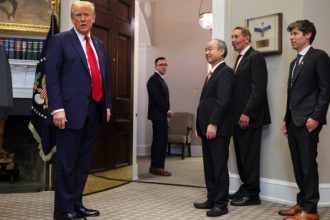I ask Liang whether the prominence of AI in meetings might make humans less likely to attend. Knowing that there will be a summary available seems a disincentive to actually showing up. Liang himself says that he attends only a fraction of the meetings he’s invited to. “As CEO of a startup, I get tons of invitations to go to meetings—oftentimes I’m double booked or triple booked,” he says. “With Otter, I can look at my invitations and rank them. I classify them based on the content, the urgency, importance, and whether my presence add any value or not.” Since he’s the CEO, he may find it easier to opt out. On the other hand, the boss’s presence in a meeting makes it more valuable to those who want clues to his thinking or an instant yes on a proposal.
Of course, the premise behind meetings is that every person’s presence adds potential value. It defeats the purpose if at the moment everyone turns to the single person who can weigh in on a problem, they find only an empty seat. But Liang has an AI solution for that too. “We’re building a system called Otter Avatar that will train a personal model for each employee for meetings where the employee doesn’t want to go or is sick or on vacation. We will train the avatar using your historical data, or your past meetings, or your Slack messages. If you have a question to ask that employee, the avatar can answer the question on their behalf.”
I point out that this might lead to an AI arms race. “I’m going to send my avatar to every meeting, and so will everyone else,” I explain. Meetings will be just a bunch of AI avatars talking to each other—afterward, people will check out the summary to see what the AIs said to each other.
“That can happen,” says Liang. “Of course, there are always situations where you want a personal relationship directly.”
“In that case,” I reply. “I can go out to a bar with those people.”
“Yes, you can have a drink with your coworker while your avatars are having a meeting with each other!” says Liang. “Ultimately you don’t need a job, because the avatar did all the job!”
We were riffing now, but there’s a serious undercurrent to this speculation. We are entering a period in AI development where businesses are embedding the technology in powerful products to be used in collaboration with humans, with the flesh-and-blood contingent firmly in charge. But many of the people building the technology are fixated on a mission to build so-called artificial general intelligence that can outperform or replace humans. If all goes to plan, what begin as useful tools could take on increasingly prominent roles in the workplace, replacing at first the pre-AI way of working—and later human workers too.
At that point we can meet up in those bars, spending our universal basic income checks on drinks. Maybe we will be wearing Dan Siroker’s pendants to capture our conversations so we can add them to our ever-expanding life archives. One question that’s sure to come up: “Can you help me remember what it was like when we used to have those old-time meetings at what used to be our jobs?”
Read the full article here





